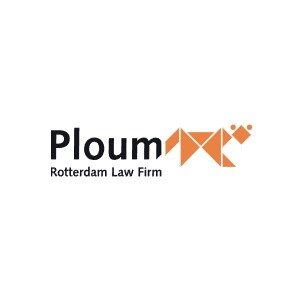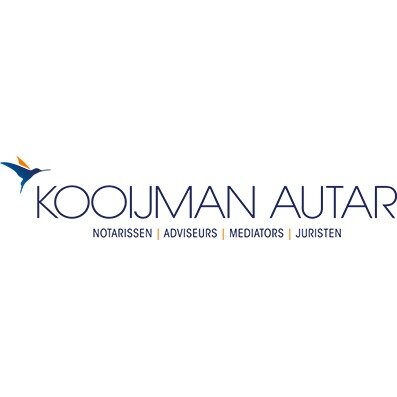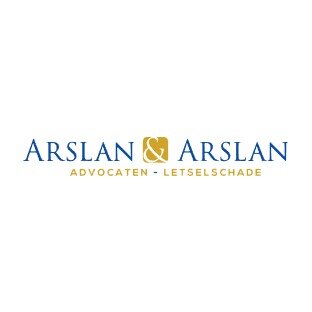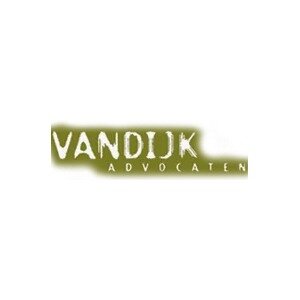Best ESG Advisory & Compliance Lawyers in Rotterdam
Share your needs with us, get contacted by law firms.
Free. Takes 2 min.
List of the best lawyers in Rotterdam, Netherlands
About ESG Advisory & Compliance Law in Rotterdam, Netherlands
Environmental, Social, and Governance (ESG) advisory and compliance law in Rotterdam focuses on helping organizations integrate sustainable and responsible practices into their business models. ESG compliance is more than just a trend; it is a legal and reputational necessity for companies operating in the Netherlands and throughout the European Union. ESG advisory services in Rotterdam guide businesses on aligning operations with local and international standards, such as those set out by the European Union Green Deal, Dutch corporate governance codes, and various sustainability regulations. Compliance with ESG principles is becoming increasingly important due to growing stakeholder expectations, regulatory requirements, and a global shift toward environmental and social responsibility.
Why You May Need a Lawyer
There are numerous situations where seeking legal advice in the field of ESG advisory and compliance is essential. A specialized lawyer can help you:
- Understand complex local and international ESG regulations and how they apply to your organization
- Navigate compliance with new reporting obligations under the EU Corporate Sustainability Reporting Directive (CSRD) or Dutch Climate Laws
- Conduct due diligence regarding environmental and social risks in mergers, acquisitions, or other business ventures
- Respond to investigations or enforcement actions by regulatory bodies for alleged non-compliance
- Draft and review contracts that contain ESG-related clauses or commitments
- Develop and implement internal ESG policies and codes of conduct
- Resolve disputes with stakeholders concerning ESG responsibilities or disclosures
- Advise on responsible supply chain management and human rights obligations
Whether you are a business leader, compliance officer, investor, or other stakeholder, legal expertise ensures you mitigate risks and position your organization for long-term success.
Local Laws Overview
ESG advisory and compliance in Rotterdam are influenced by a combination of Dutch national laws and European regulations. Key aspects include:
- Dutch Corporate Governance Code: Sets the framework for responsible business conduct, transparency, and long-term value creation for listed companies.
- EU Corporate Sustainability Reporting Directive (CSRD): Mandates companies above certain thresholds to disclose detailed sustainability data, including ESG risks and performance indicators.
- Dutch Environmental Management Act: Governs environmental licensing and sustainable business practices, requiring companies to limit or prevent harm to the environment.
- EU Taxonomy Regulation: Provides a classification system for sustainable economic activities, which businesses must reference in reporting and strategy.
- Human Rights Due Diligence Laws: The Netherlands is considering legislation on mandatory human rights due diligence, signaling a move toward stricter supply chain responsibility.
- Climate Policy: The Dutch Climate Agreement and related laws aim to achieve significant reductions in carbon emissions, affecting corporate operations and reporting requirements.
Complying with these regulations requires ongoing attention to new legal developments at both national and EU levels.
Frequently Asked Questions
What is ESG advisory and compliance?
ESG advisory and compliance involves helping organizations recognize, understand, and fulfill their legal and ethical responsibilities related to environmental, social, and governance issues, and ensuring that business practices align with regulations and stakeholder expectations.
Are there specific ESG laws in Rotterdam different from the rest of the Netherlands?
Rotterdam follows national Dutch laws and European regulations regarding ESG. However, as a major port city with significant industrial activity, Rotterdam companies may face stricter local enforcement or additional sector-specific requirements.
Which companies are required to comply with ESG regulations in the Netherlands?
Increasingly, all medium to large companies, particularly those listed on the stock exchange or operating internationally, must comply with ESG reporting and standards. Some regulations also impact small and medium enterprises through supply chain requirements.
What are the consequences of non-compliance with ESG laws?
Non-compliance can result in fines, reputational harm, litigation, exclusion from contracts or investment opportunities, and remedial orders from regulators. Severe violations may also lead to criminal liability.
How do Dutch laws address environmental obligations?
Legislation like the Environmental Management Act requires companies to mitigate pollution, report environmental impact, follow waste management protocols, and obtain necessary permits.
Do I need to report on ESG if my business is not publicly listed?
Even if not required to do so by law, increasingly customers, investors, and partners expect private companies to provide ESG disclosures. Some regulations also apply indirectly through value chain obligations.
What is the role of due diligence in ESG compliance?
Due diligence helps businesses identify, assess, and address potential environmental or human rights risks in their own operations and supply chains, which is becoming a legal requirement under Dutch and EU rules.
How can a lawyer help with ESG reporting?
A lawyer can advise on what must be included in ESG reports, ensure disclosures meet legal standards, draft appropriate language, and review information for accuracy to avoid legal exposure.
Are there upcoming changes to ESG laws in the Netherlands?
Yes, there are ongoing developments, especially with the upcoming implementation of the EU Corporate Sustainability Reporting Directive and anticipated new Dutch laws on human rights due diligence, which may introduce broader compliance requirements.
Can ESG compliance impact my access to investment and financing?
Yes, many banks and investors now assess ESG performance when making financial decisions or offering favorable terms. Strong ESG compliance can improve access to capital and reduce borrowing costs.
Additional Resources
For more information and assistance regarding ESG advisory and compliance in Rotterdam, consider contacting or consulting the following resources:
- Dutch Authority for the Financial Markets (AFM) - Supervises compliance with financial reporting including ESG-related disclosures
- Netherlands Enterprise Agency (RVO) - Provides guidance on sustainable business practices and government incentives
- Rotterdam Chamber of Commerce - Offers resources for local businesses on sustainability and compliance
- SER (Social and Economic Council of the Netherlands) - Issues guidance and recommendations regarding responsible business conduct
- Dutch Ministry of Economic Affairs and Climate Policy - Regulates climate and sustainability policy
- Local law firms specialized in ESG, sustainability, and compliance law
Next Steps
If you need legal assistance in ESG advisory and compliance in Rotterdam, consider the following steps:
- Assess your current ESG obligations and practices to identify areas of potential risk or non-compliance
- Gather relevant documentation including policies, reports, and contracts
- Contact a lawyer or legal firm with expertise in ESG, sustainability, and Dutch or EU regulatory frameworks
- Schedule an initial consultation to discuss your needs, receive preliminary advice, and plan a compliance strategy
- Stay informed about evolving regulations to ensure ongoing adherence and to benefit from new opportunities in sustainable business
Timely legal advice can protect your organization, enhance reputation, and contribute to sustainable business growth in Rotterdam and beyond.
Lawzana helps you find the best lawyers and law firms in Rotterdam through a curated and pre-screened list of qualified legal professionals. Our platform offers rankings and detailed profiles of attorneys and law firms, allowing you to compare based on practice areas, including ESG Advisory & Compliance, experience, and client feedback.
Each profile includes a description of the firm's areas of practice, client reviews, team members and partners, year of establishment, spoken languages, office locations, contact information, social media presence, and any published articles or resources. Most firms on our platform speak English and are experienced in both local and international legal matters.
Get a quote from top-rated law firms in Rotterdam, Netherlands — quickly, securely, and without unnecessary hassle.
Disclaimer:
The information provided on this page is for general informational purposes only and does not constitute legal advice. While we strive to ensure the accuracy and relevance of the content, legal information may change over time, and interpretations of the law can vary. You should always consult with a qualified legal professional for advice specific to your situation.
We disclaim all liability for actions taken or not taken based on the content of this page. If you believe any information is incorrect or outdated, please contact us, and we will review and update it where appropriate.














